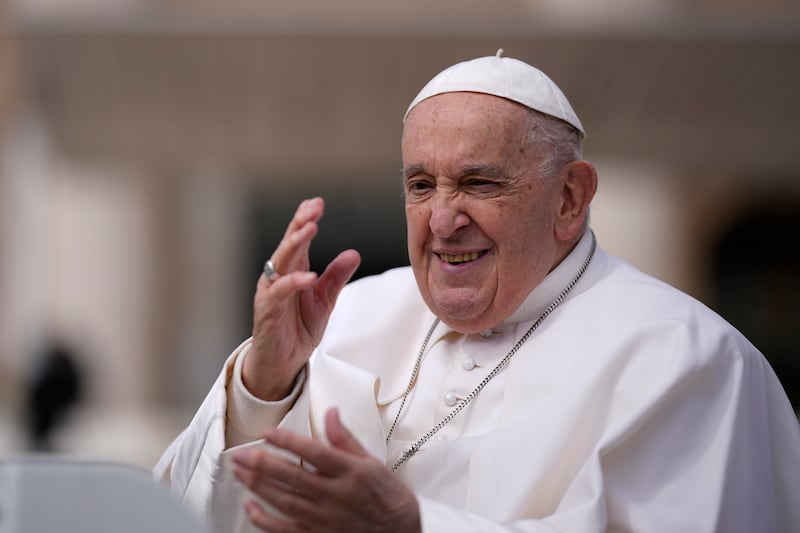Pope Francis issued the fourth encyclical of his papacy on Thursday, denouncing a world that “is losing its heart” during times of global turmoil marked by “wars, socio-economic disparities and the uses of technology that threaten our humanity”.
The document titled “Dilexit Nos”, Latin for “He Loves Us”, was issued to coincide with the 350th anniversary of St Margaret Mary Alocoque’s first apparition, which helped spread devotion to the Sacred Heart of Jesus revealing his love of humanity.
The social encyclical appeals to the faithful to “meditate” on Jesus’ love in a world in which consumerism and algorithms obscure humanity.

It is his fourth encyclical, the best-known of which to date is the 2015 “Laudato Si”, or “Praised Be,” which cast care for the environment in moral terms.
In “Dilexit Nos”, the pontiff did not cite specific examples of global turmoil in the 220-paragraph document issued in eight languages, although he frequently refers to conflicts from Ukraine to Gaza in homilies, weekly prayers and global travels.
Pope Francis often asks for prayers for the “martyred” people of Ukraine and most recently cited “inhumane attacks” in Gaza.
In the Middle East conflict, he has tended to take a balanced line, often mentioning Israel and the hostages still held by Hamas alongside the suffering of the Palestinians.
In the document, the pontiff said the failure to “feel that something is intolerable” in the suffering on both sides of conflict “is a sign of a world that has grown heartless”.
“When we witness the outbreak of new wars, with the complicity, tolerance or indifference of other countries, or petty power struggles over partisan interests, we may be tempted to conclude that our world is losing its heart,” he wrote.

The pope warned that consumer-driven societies “dominated by the hectic pace and bombarded by technology” risked interfering with the possibility of engaging with an “interior life”.
He noted that algorithms have revealed that “our thoughts and will are much more ‘uniform’ than we had previously thought. They are easily predictable and thus capable of being manipulated”.
In an era of artificial intelligence, “we cannot forget that poetry and love are necessary to save our humanity”, he wrote.
Vatican encyclicals are the most authoritative form of papal teaching and traditionally take their titles from the first two words of the document.
Monsignor Bruno Forte, a theologian who is archbishop of the Italian diocese of Chiet-Vasto, said the “Dilexit Nos” encyclical “can be truly considered as a summary of everything that Pope Francis has said and wishes to say to our brothers in humanity. He says, ‘God loves you and has shown you in the best way, through Jesus'”.
Monsignor Forte said the document should not be viewed as “just a spiritual refuge” but as a proposal of “love, mutual reception and forgiveness”.








